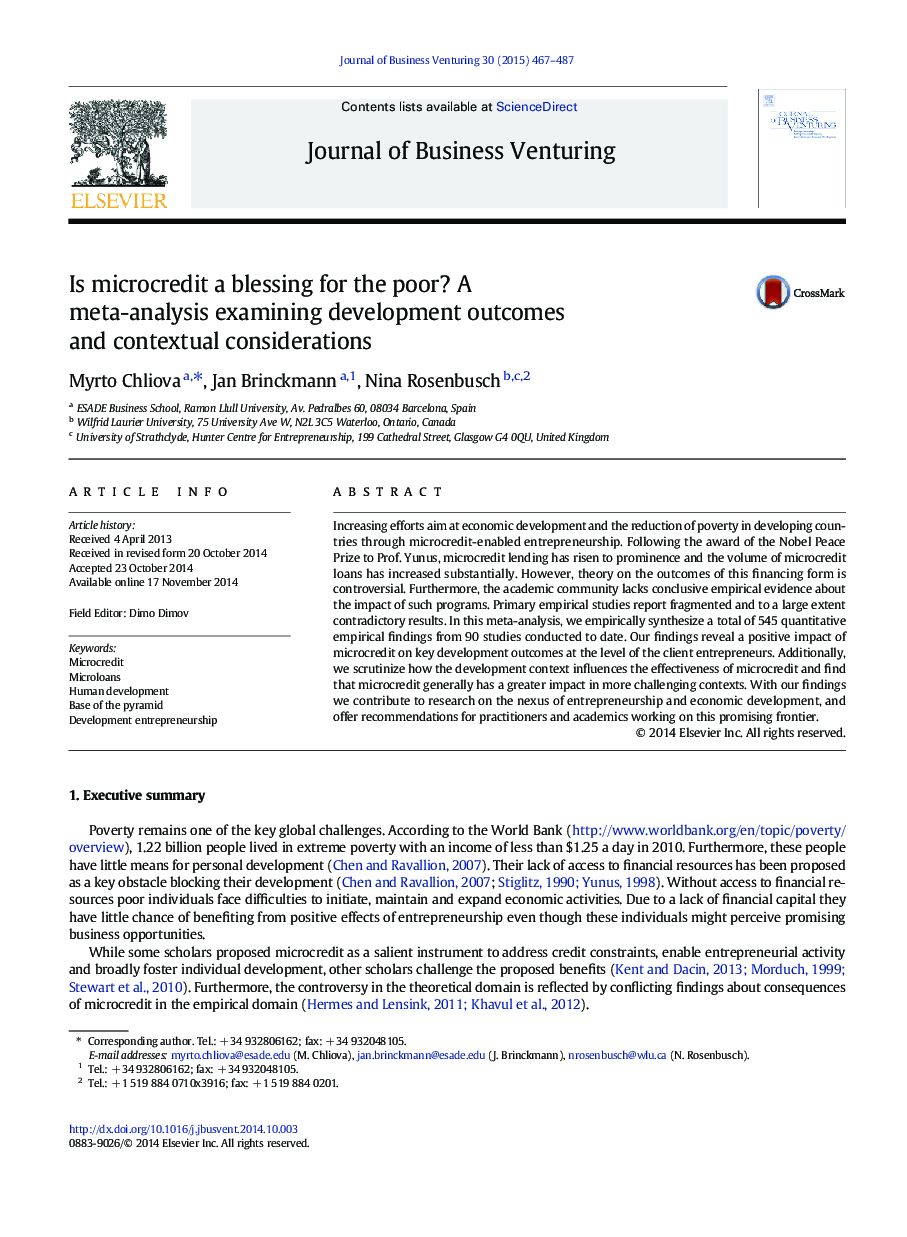| Article ID | Journal | Published Year | Pages | File Type |
|---|---|---|---|---|
| 1019385 | Journal of Business Venturing | 2015 | 21 Pages |
•Meta-analysis of 545 observations from 90 studies on the impact of microcredit.•We draw on Amartya Sen's capability approach to guide this meta-analysis.•Impact on both financial and human development outcomes is assessed.•Overall, microcredit has positive but moderate impact on most outcomes.•We additionally explore contextual moderators of microcredit's impact.
Increasing efforts aim at economic development and the reduction of poverty in developing countries through microcredit-enabled entrepreneurship. Following the award of the Nobel Peace Prize to Prof. Yunus, microcredit lending has risen to prominence and the volume of microcredit loans has increased substantially. However, theory on the outcomes of this financing form is controversial. Furthermore, the academic community lacks conclusive empirical evidence about the impact of such programs. Primary empirical studies report fragmented and to a large extent contradictory results. In this meta-analysis, we empirically synthesize a total of 545 quantitative empirical findings from 90 studies conducted to date. Our findings reveal a positive impact of microcredit on key development outcomes at the level of the client entrepreneurs. Additionally, we scrutinize how the development context influences the effectiveness of microcredit and find that microcredit generally has a greater impact in more challenging contexts. With our findings we contribute to research on the nexus of entrepreneurship and economic development, and offer recommendations for practitioners and academics working on this promising frontier.
